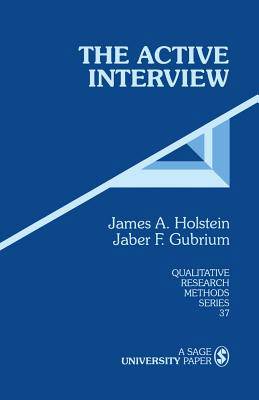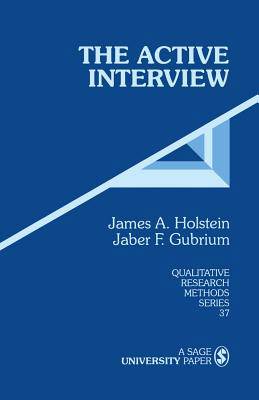
- Retrait gratuit dans votre magasin Club
- 7.000.000 titres dans notre catalogue
- Payer en toute sécurité
- Toujours un magasin près de chez vous
- Retrait gratuit dans votre magasin Club
- 7.000.000 titres dans notre catalogue
- Payer en toute sécurité
- Toujours un magasin près de chez vous
Description
Interviews were once regarded as the pipeline through which information was transmitted from a passive subject to an omniscient researcher. However the new "active interview" considers interviewers and interviewees as equal partners in constructing meaning around an interview. This interpretation changes a range of elements in the interview process - from the way of conceiving a sample to the ways in which the interview may be conducted and the results analyzed. In this guide, the authors outline the differences between active and traditional interviews and give novice researchers clear guidelines on conducting a successful interview.
Spécifications
Parties prenantes
- Auteur(s) :
- Editeur:
Contenu
- Nombre de pages :
- 96
- Langue:
- Anglais
- Collection :
- Tome:
- n° 37
Caractéristiques
- EAN:
- 9780803958951
- Date de parution :
- 20-04-95
- Format:
- Livre broché
- Format numérique:
- Trade paperback (VS)
- Dimensions :
- 138 mm x 213 mm
- Poids :
- 108 g







